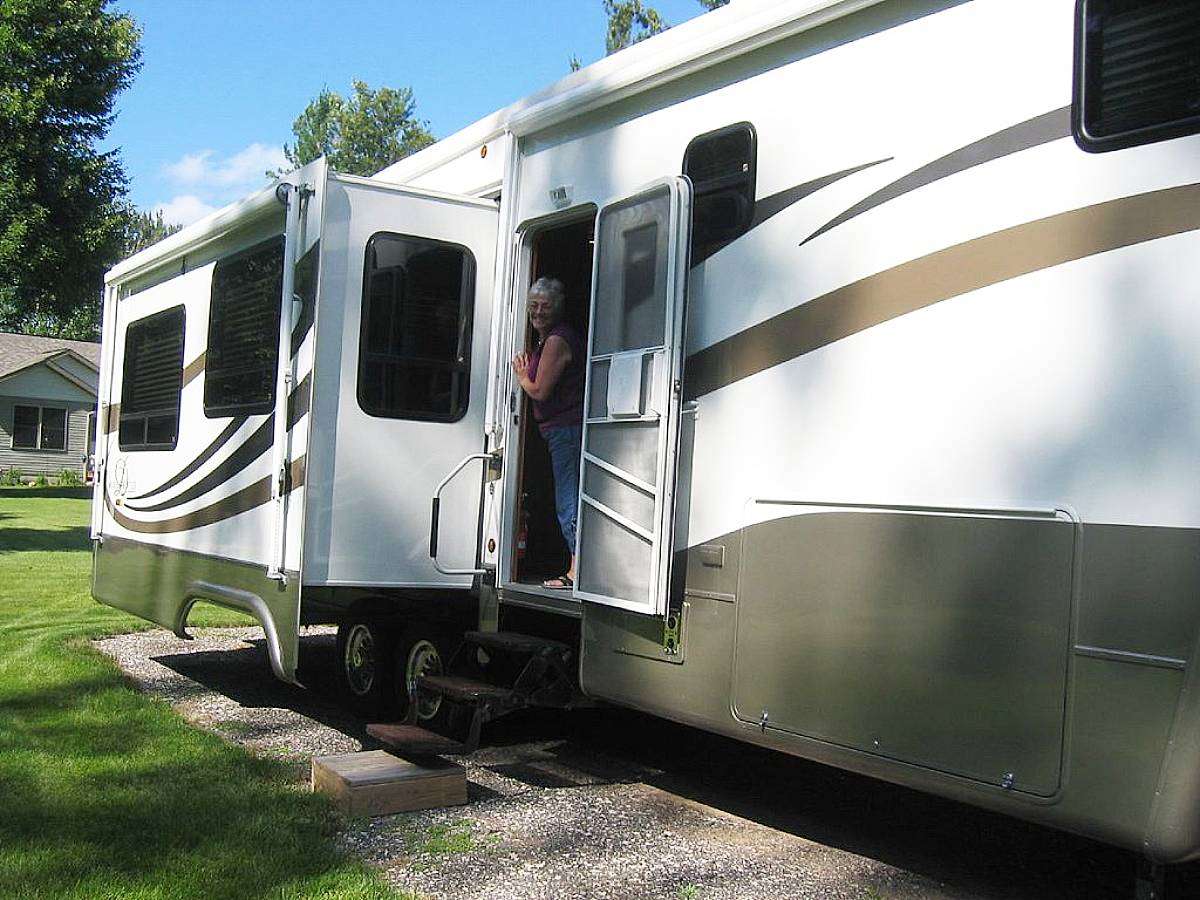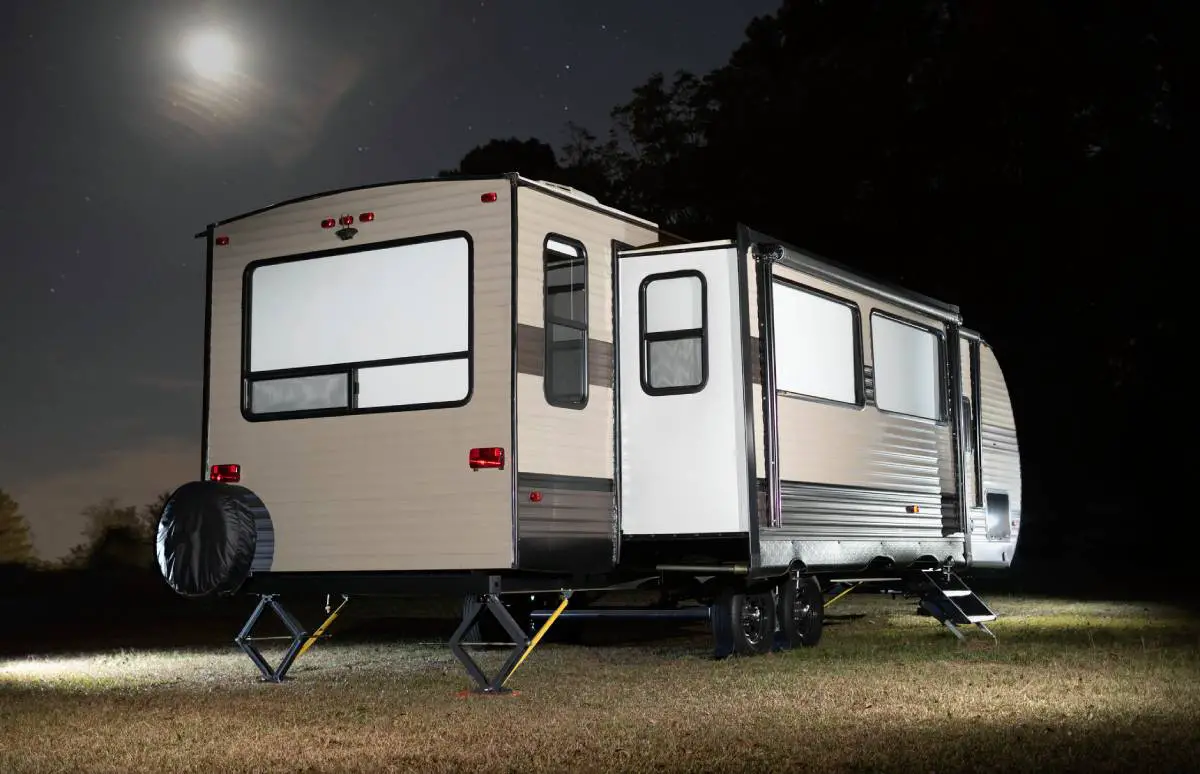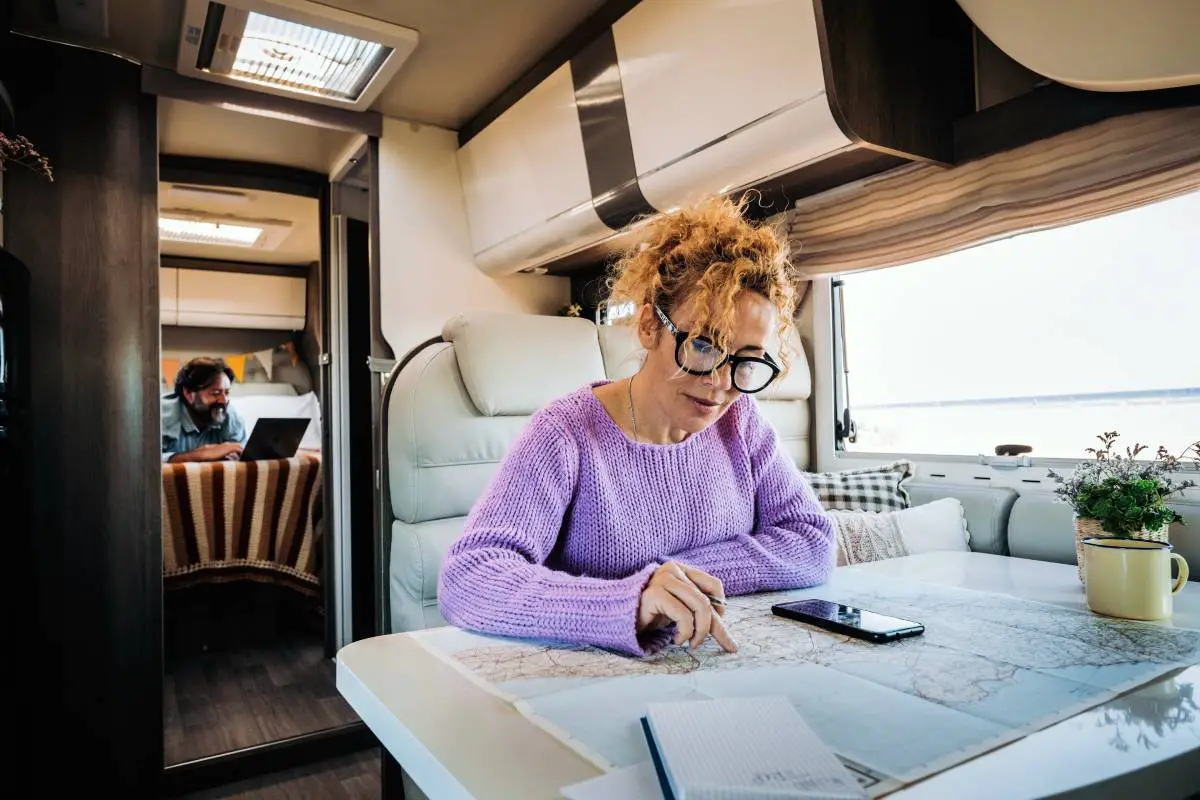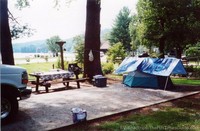 Jim and I have worked in campgrounds and resorts for more than seven years. We have seen lots of campers come and go, camping in everything from tents to the most expensive motor homes. No matter what they camp in, they all have one thing in common-they want to have a fun time!
Jim and I have worked in campgrounds and resorts for more than seven years. We have seen lots of campers come and go, camping in everything from tents to the most expensive motor homes. No matter what they camp in, they all have one thing in common-they want to have a fun time!
Here are some tips to remember to make sure everyone has a good time…
DON’TS:
 Don’t feed the animals! No matter how cute they may be, they are still wild. Feeding them can hurt them in many ways.
Don’t feed the animals! No matter how cute they may be, they are still wild. Feeding them can hurt them in many ways.
First, they learn to beg from others, more importantly, they may forget how to forage naturally for food and become dependent on humans for food. What happens to them in the “off” season when no one is around to offer them a handout?
Second, they lose their fear of humans, and may approach someone too closely who is not so loving, or who is even fearful of animals. We were at one park where the squirrels were so used to being fed that they tried to come into our trailer! They might even try to get into your tent or your food supply during the night. They are sure cute when they eat the leftover potato chips, but when they eat your breakfast it won’t be so funny.
 Don’t scavenge for firewood without asking first. Many state parks do not allow gathering of firewood. Also, cutting of trees for firewood is forbidden in most parks.
Don’t scavenge for firewood without asking first. Many state parks do not allow gathering of firewood. Also, cutting of trees for firewood is forbidden in most parks.
Although this sounds like just plain common sense, lots of people try to cut trees to burn in their fire rings. Imagine how barren the campground would look if everyone cut a tree during their stay. The price of firewood in the camp store is minimal, usually about $4.00 per bundle, so just bite the bullet and figure that into the cost of your camping trip.
Oh, and due to the spread of insect infestations and infectious tree diseases some places don’t allow you to bring your own firewood, either. It is always best to call and ask if you don’t know the regulations in the area where you’ll be camping.
 Don’t burn trash in your fire ring. All too often we are subjected to the noxious aroma of plastic and other trash that our camping neighbors dispose of by burning in their fire rings.
Don’t burn trash in your fire ring. All too often we are subjected to the noxious aroma of plastic and other trash that our camping neighbors dispose of by burning in their fire rings.
Besides the smell, plastic, styrofoam, aluminum and other trash leave behind debris that can expose the next campers to the toxins if they cook their meals over an open fire.
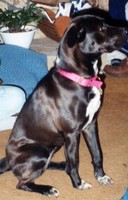
 Don’t let your pets run loose. Most every park I have been in has a rule that your pets must be kept on a leash.
Don’t let your pets run loose. Most every park I have been in has a rule that your pets must be kept on a leash.
Even if your dog is the friendliest one ever, it must be kept leashed. The leash rule is mostly for the protection and safety of your pet, especially in more remote, wooded parks where the possibility of wild animals being in the area is greater.
While running into a bear in Georgia or Pennsylvania may be rare, it is not unheard of. And there are many skunks, raccoons, opossums, and other wild animals that could attack your pet or entice them to run off into the woods.
You have to also keep in mind that while you know your beloved animal is a teddy bear, there are some people who are afraid of even the smallest of dogs. Their fear can trigger a bite response. I know, because I have been bitten by three dogs that “never bite.”
Now for some things you should do…
DO’S:
 Give your kids the facts. If you have children camping with you, teach them the campsite number you’re staying on, your cell phone number, and your full name if you’re the grandparents or a neighbor.
Give your kids the facts. If you have children camping with you, teach them the campsite number you’re staying on, your cell phone number, and your full name if you’re the grandparents or a neighbor.
You would be surprised how many children of all ages have become disoriented or lost and don’t know where they “live” in the campground, or don’t know the name of the people they are camping with other than “Grandma”. One good idea I have seen is to write the information on the back of a business card for the child to keep in their pocket.

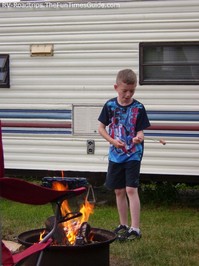 Put campfires out completely before going to bed at night. Keep a bucket of water and a rake near the fire ring, and make sure a blazing fire is never left unattended.
Put campfires out completely before going to bed at night. Keep a bucket of water and a rake near the fire ring, and make sure a blazing fire is never left unattended.
If you’re camping in a tent or pop-up, keep your food supply and trash stored away from your campsite. Open containers of food, and empty cans and bags attract critters to your site.
 Pick up and throw away all your litter. Before you leave, have everyone check for plastic wrappers, bottle caps, scraps of aluminum foil and anything else that may have escaped the trash bag.
Pick up and throw away all your litter. Before you leave, have everyone check for plastic wrappers, bottle caps, scraps of aluminum foil and anything else that may have escaped the trash bag.
Leave your campsite cleaner than you found it, and the next person will have as good a time as you did.
 And, most of all… have FUN!
And, most of all… have FUN!
My hubby and I have been living in a travel trailer and working at campgrounds and resorts for the past several years. We decide where we want to go, and look for a job there.

